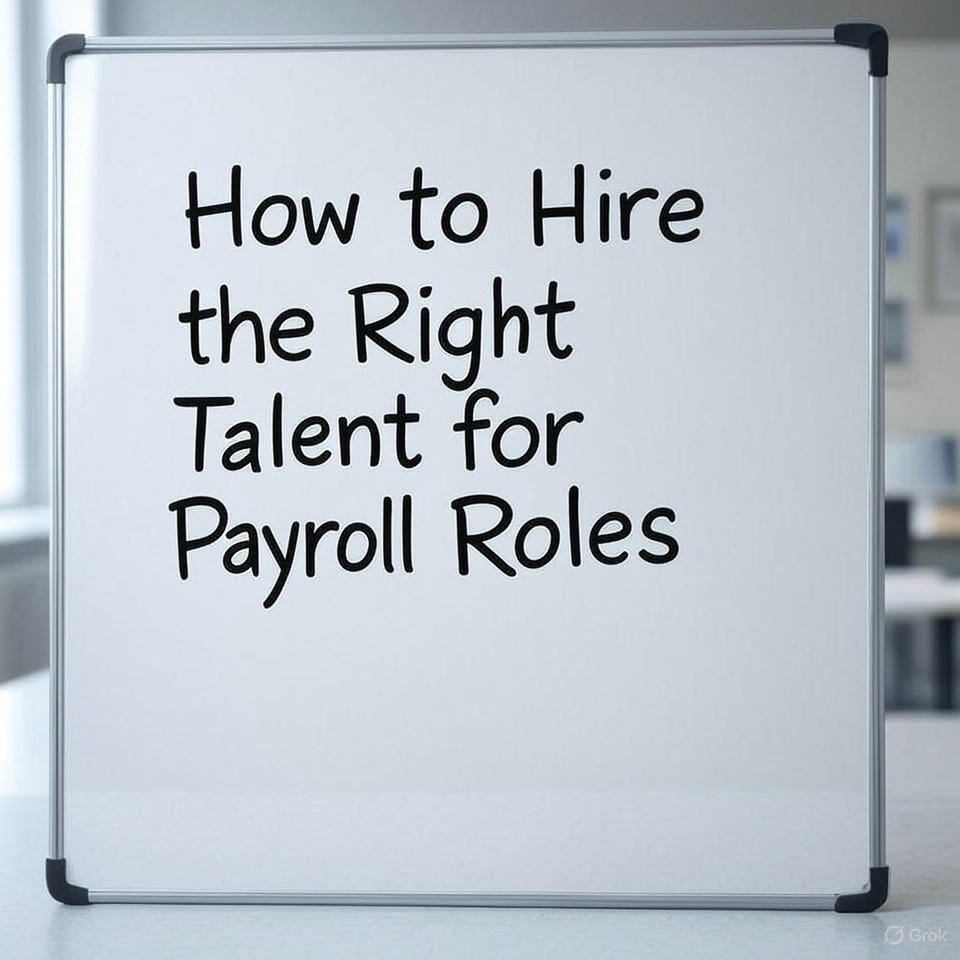Hiring someone to manage payroll isn’t just about numbers. It’s about trust. Reliability. A quiet kind of precision that, when done right, barely registers—but when done wrong, echoes across an entire company. Whether you’re building an in-house team or looking to bolster an existing function, finding the right person for a payroll role requires a thoughtful, strategic approach that goes far beyond ticking boxes on a CV.
Because this isn’t just a back-office job. It’s the nerve centre of your operations. Get it wrong, and you’ll feel the ripple effects in compliance issues, morale dips, and frantic month-ends. Get it right, and no one notices—which, paradoxically, is a sign you’ve nailed it.
What Does “Right” Even Mean in Payroll?
There’s no universal mold for the perfect payroll hire. The “right” candidate depends heavily on your company’s size, structure, software, and whether you’re operating domestically or globally. That said, certain traits cut across most good hires in this space.
You want someone meticulous—yes—but also unflappable. Calm in the face of deadlines. Someone who can handle the quiet responsibility of being trusted with everyone’s pay and personal data. A person who understands legislation well enough to keep you compliant without making it your problem.
But let’s get specific. If you’re hiring for a payroll officer role in a small company, you might need a generalist who can also handle HR admin. In larger businesses, you’re more likely looking for a specialist—someone fluent in a particular system (say, ADP, Sage, or SAP), with deep technical knowledge and a strong understanding of pension schemes or international tax treaties.
Why Domain-Specific Expertise Matters
This is where recruitment gets tricky. Payroll isn’t something you can fake your way through. And while it might be tempting to promote a loyal team member into the role, if they’re not up to speed on regulatory requirements, you could be courting trouble.
Instead, it’s often safer—and faster—to work with professionals who offer expert support for payroll hiring. Because let’s face it: even HR managers don’t always know what a great payroll CV looks like. Is three years of experience enough? What counts as “international exposure”? Is CIPP certification essential? Having someone in your corner who understands the nuances of the field can save you from making costly mistakes. They’ll know the red flags, the hidden gems, and the difference between someone who’s “done payroll” and someone who’s actually done it well.
Soft Skills Still Matter (More Than You Think)
Payroll is often painted as a purely technical function—data in, payslip out. But it’s people work at its core. Your payroll team is a frontline responder when something goes wrong with someone’s pay, which means you need empathy. Communication. Discretion.
No one remembers when payroll is perfect. But everyone remembers when it’s not. That means the best hires tend to be those who combine process excellence with emotional intelligence. They know how to speak to stressed employees without making promises they can’t keep. They understand how to escalate issues without adding fuel to the fire.
In interviews, watch how candidates talk about past errors (they’ve all had some). Do they accept responsibility? Do they understand the human side of mistakes? Are they driven by a need to get things right, not just quickly, but fairly?
Contract or Perm?
One thing worth considering—especially for small businesses—is whether you even need a permanent hire. Sometimes, interim payroll professionals can be the perfect bridge during periods of rapid growth or system transitions. They’re often highly skilled, used to onboarding fast, and bring fresh perspective to entrenched processes.
But if you do go permanent, it’s wise to think beyond the immediate need. Payroll systems and laws change. Automation is creeping into the field. A great hire today is someone who won’t just survive that evolution but help you thrive through it. Look for curiosity, adaptability, and a willingness to learn—not just a history of repetitive processing.
Where to Look (And Where Not To)
This might be controversial, but payroll roles shouldn’t be filled from generalist job boards. You’re not looking for volume—you’re looking for alignment. Targeted channels, niche recruiters, and industry-specific networks tend to yield better results. It might take longer. It might cost more. But the alternative is sifting through dozens of mismatched CVs and hoping one of them sticks.
The right candidate is out there—but finding them isn’t about luck. It’s about knowing where to look, what to ask, and who to trust with the process. And in roles where accuracy meets accountability, getting it right is non-negotiable.





